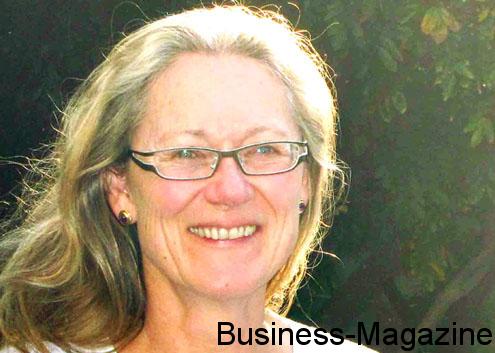Frances Potter: empowering women across borders
Share

She is the co-founder of The New Basket Workshop, a non-profit organisation registered in South Africa. Frances Potter aims at helping women use their art and craft skills to earn cash resources needed to sustain their families.
Crinkling eyes. A mixture of passion and determination. Frances Potter is one of the founders of The New Basket Workshop (TNBW), a non-profit organisation registered in South Africa, which assists basket makers in several African countries.
Her career journey started on a different note, as a researcher, years ago. Frances, who is of South African origin, then practiced as a lawyer during South Africa’s turbulent 1980s in the fields of human rights and low-income housing. Her zeal to empower women then took over. “In 2002, I was fortunate enough to be able to combine my interest in rural development with my love for craft when the US-based non-governmental organisation (NGO) Aid to Artisans (ATA) employed me,” she states.
With ATA, Frances Potter worked in South Africa, Tanzania and Mozambique. She then established ATA South Africa Trust and later co-founded TNBW. This NGO uses a model of design-led product development to improve rural livelihoods. Since 2008, TNBW has worked extensively with basket makers in Zimbabwe, linking their products to markets using design collaborations as a tool to improve market access. Frances has more recently worked with crafters in South Africa’s iSimangaliso Wetland.
Frances Potter is also coordinating a project entitled ‘Crafting a Better World through Design’, in collaboration with TNBW and India’s Ahmedabad-based National Institute of Design (NID), on a programme for basket makers in five African countries: Zimbabwe, Ghana, Ethiopia, Zambia and Malawi. The purpose of the initiative is to adapt to the basket making traditions, practices and challenges facing Africa’s women basket weavers, through drawing on the experience and knowledge of India’s basketry and design sectors. “This includes empowering rural women basket weavers through design tools aimed at employment generation and enhanced livelihood opportunities. The project scope entails product development and diversification, brand building, as well as the training of trainers – 125 in all – at the NID’s campus,”explains Frances Potter.
She modestly adds that there is nothing unique about what she does: “It is simply about linking artisan groups to the market in order to sell their products. The weavers live in really basic conditions, often a long distance from water and mostly without electricity. Livelihood opportunities in remote places are scarce. Creating the market to sell the products they make is one way of providing them with financial independence”.In addition to her work with the various organisations listed above, Frances Potter has also been a judge for UNESCO’s Prix d’Excellence and Label d’Excellencein Burkina Faso, Gabon and Mali. She is an advisor to the Joburg Fringe, an independent art fair and organisation in South Africa, to the Africa Craft Trust and to the International Network for Craft Development.
“My work has exposed me to the problems confronting artisans and craft producers in some of the poorest parts of the world. I work with them to find solutions to the difficulties they confront in managing and maintaining regular sales,” Frances Potter states. However, why basket makers in particular? To this, she replies that in rural communities, especially where women are farming in fragile marginal agricultural areas – in other words they are subsistence farmers – they are in need of ways to raise money for clothing, school fees and health care. “For many women, basket making has offered a means of doing this. For instance, in Zimbabwe and Zambia, women have for generations sold baskets to pay for their children’s education. Women are just so much better at understanding how important this is for their families and finding the way to do it,”states Frances Potter.
She adds that “basket making draws on the fantastic skills they already have and uses materials that they have control over, to earn the cash resources needed for their families.”“We have worked to combine these traditional skills and materials with the design input to extend the repertoire of what they produce. It is really difficult for women who barely have access to a radio, never mind television or printed media, to understand what appeals to international and contemporary markets. These are keen for baskets of all kinds,”she explains.
To achieve this end, a lot of travelling is required, across communities and across borders. Frances Potter, however, shrugs off the tough travel prerequisite as a small part of the job’s requirements. “I love travelling,”she admits: “I am not sure my family agrees, but for this work, travelling gives me access to incredible communities in sometimes really remote places. I am privileged to meet the most amazing women doing extraordinary work.For all of them, the offer of increased market access makes enormous sense. They are not waiting for a handout,” she says.“Instead, they are looking for ways to pay for school fees and afford healthcare. If we can improve these opportunities, then everything we do is worthwhile”.
While empowering basket weavers brings her contentment on the job-front, Frances Potter is a classic victim of the ‘you cannot have your cake and eat it too’ saying. Indeed, she is married and has a 16-year old daughter whom she does not see often enough. “She is the one I miss the most. Sometimes, I take her with me. I do what I do because of the knowledge that this little action might change lives for the better,”she confides. Also, to do her bit on the road to empowering women financially. She adds: ‘‘We definitely need more strong women in business”.

















